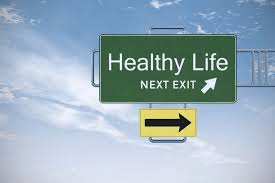
 Recently, my wife and I joined our church for a ‘fast’ that restricts all fluids to water and all foods to fruits, nuts, beans, and vegetables for 21 days.
Recently, my wife and I joined our church for a ‘fast’ that restricts all fluids to water and all foods to fruits, nuts, beans, and vegetables for 21 days.
No meat, dairy, caffeine or processed foods!
No coffee, tea, juice or soda.
Should’ve been a breeze, right?
As a family medicine physician who focuses on prevention, I have always tried to ‘walk the walk and back up the talk’ and had already been consuming the organic nuts, fruits, and veggies on regular basis.
I didn’t anticipate having a problem with an occasional detour from my healthy routine—a sugary treat (chocolate-covered pretzels are dangerous!), a once a week pasta dish (Mardi Gras meal,) dairy (cheese is my downfall,) and of course…daily caffeine (who am I kidding, I’m freakin’ out!)
As it turns out, I had over-estimated my discipline and under-estimated how frequently I had been eating these foods. I had been lying to myself as to how much I partook of these little ‘harmless’ treats.
I’m now three weeks into the fast without the sweets, meats, treats, and stimulants.
After the brain swelling (seemingly) resolved from caffeine withdrawal, I began to notice some changes in how I felt.
My mood, concentration and energy had all improved. I had also been enduring a mild case of ankle tendonitis for several years and currently have no symptoms (I’ll keep my fingers crossed!)
I won’t go into details with regard to my gastrointestinal system other than to say it has ‘improved efficiency.’
Crudities aside, I made a powerful discovery that may help you in your quest to achieve better health in the New Year.
You see I had also experienced several negative symptoms, at least initially.
For the first week, I had the exact withdrawal symptoms as those patients with whom I have previously seen in my medical practice who were drug addicts.
Agitation, fear of failure, depressed mood, anxiety, insomnia, nausea, and abdominal cramps were all present for the first several days and to a lesser extent since.
These are familiar symptoms to any addict withdrawing from alcohol, narcotic pain meds, or even street drugs.
You may be asking why I would draw a correlation between withdrawal of drugs and the symptoms I was experiencing.
The truth is…we are all addicted!
Caffeine, sugar, MSG, aspartame, high fructose corn syrup, modified food starch or their socially excepted transport mediums café latte, donuts, taco seasoning, diet soda, catsup, most salad dressings, etc. all are addicting.
I really never realized to what extent until I eliminated 100% of these substances from my diet for three weeks.
One definition of addiction is as follows: ‘an uncontrollable compulsion to repeat a behavior regardless of its negative consequences.’
So what’s the point, Doc? You ask.
The truth is, when one is addicted, they don’t sit around thinking ‘Wow, I really am addicted to that!’
One may have periodic moments of clarity when addiction is suspected. That clarity quickly fades when the ‘primal and uncontrollable desire’ to satiate or satisfy the addiction surfaces.
Most have had that moment, after skipping a meal & finally getting time to eat, in which anything and everything in front of us is devoured within minutes, almost without realizing what was eaten.
We really aren’t going to starve to death right then and there! However, the addiction center in our brains takes over, almost uncontrollably.
After a quick trip through the drive-thru–two cheeseburgers, large fries, large soda and 1800 calories later–you realize you just ate your allotted calories for the day (and did so just prior to retiring for the night.)
Why wouldn’t a hand full of nuts, some cut up veggies, and some hummus with green tea suffice?
You know that would have been a healthier choice, right?
You also know that those unhealthy foods make you fat. You also know that the massive calorie, fat, starch and sugar-filled nutritionally deplete meal you just ate will give you health problems at some point, right?
Remember the definition of addiction–‘an uncontrollable compulsion to repeat a behavior regardless of its negative consequences.’
The problem is our subconscious mind essentially takes over. We truly can’t control what we are doing unless we are mentally prepared for those cravings.
If you understand what to expect from your subconscious mind, you will better understand and anticipate those cravings and better be able to stay on track with your new way of eating.
With time, the cravings subside and your new way of eating feels normal.
You actually re-train your taste buds (and your brain!)
The fun part is when you start noticing changes in how you look and feel (like I did!). The momentum kicks in and no one can stop you–not even your subconscious self!
